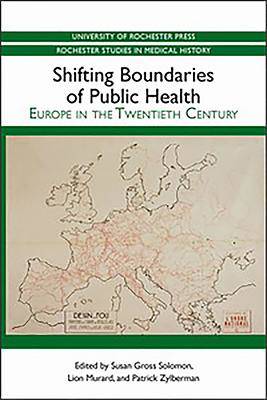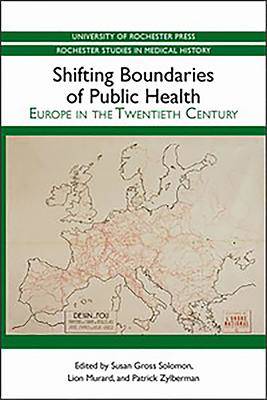
- Afhalen na 1 uur in een winkel met voorraad
- Gratis thuislevering in België vanaf € 30
- Ruim aanbod met 7 miljoen producten
- Afhalen na 1 uur in een winkel met voorraad
- Gratis thuislevering in België vanaf € 30
- Ruim aanbod met 7 miljoen producten
Zoeken
Shifting Boundaries of Public Health
Europe in the Twentieth Century
€ 64,45
+ 128 punten
Omschrijving
European public health was a playing field for deeply contradictory impulses throughout the twentieth century. In the 1920s, international agencies were established with great fanfare and postwar optimism to serve as the watchtower of health the world over. Within less than a decade, local-level institutions began to emerge as seats of innovation, initiative, and expertise. But there was continual counterpressure from nation-states that jealously guarded their policymaking prerogatives in the face of the push for cross-national standardization and the emergence of original initiatives from below. In contrast to histories of twentieth-century public health that focus exclusively on the local, national, or international levels, Shifting Boundaries explores the connections or "zones of contact" between the three levels. The interpretive essays, written by distinguished historians of public health and medicine, focus on four topics: the oscillation between governmental and nongovernmental agencies as sites of responsibility for addressing public health problems; the harmonization of nation-states' agendas with those of international agencies; the development by public health experts of knowledge that is both placeless and respectful of place; and the transportability of model solutions across borders. The volume breaks new ground in its treatment of public health as a political endeavor by highlighting strategies to prevent or alleviate disease as a matter not simply of medical techniques but political values and commitments.
Specificaties
Betrokkenen
- Uitgeverij:
Inhoud
- Aantal bladzijden:
- 346
- Taal:
- Engels
- Reeks:
- Reeksnummer:
- nr. 12
Eigenschappen
- Productcode (EAN):
- 9781580464550
- Verschijningsdatum:
- 15/04/2013
- Uitvoering:
- Paperback
- Formaat:
- Trade paperback (VS)
- Afmetingen:
- 152 mm x 229 mm
- Gewicht:
- 467 g

Alleen bij Standaard Boekhandel
+ 128 punten op je klantenkaart van Standaard Boekhandel
Beoordelingen
We publiceren alleen reviews die voldoen aan de voorwaarden voor reviews. Bekijk onze voorwaarden voor reviews.







